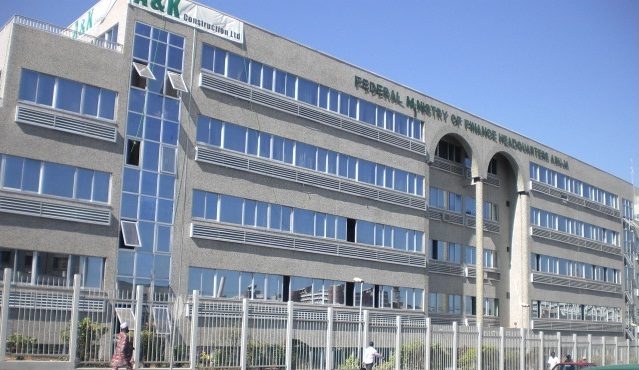By Tunji Olaopa
One of the reasons I always return to my professional starting point in the Presidency is essentially because it constituted a seminal grounding foundational space where several political, non-political and technocratic actors hammered the rehabilitation of the Nigerian state. Indeed, IBB drew into his kitchen cabinet a significant number of intellectuals from the corps of political scientists in Nigeria including professors Omo Omoruyi, Bolaji Akinyemi, Humphrey Nwosu, Ibrahim Gambari, Sam Oyovbaire, Tunde Adeniran, Tunji Olagunju, Adele Jinadu, A. D. Yahaya, Jonah Elaigwu inclusive, among others. It was in the seminal climate of policy work where these scholars worked with a legion of others within a multidisciplinary and transdisciplinary matrix in the Presidency that I began to cut my professional teeth not just as a civil servant but as a scholar of public administration. It was at the Presidency that I first started at the Speechwriting Unit, and then began to make my way round all the critical sectors, ministries, departments and agencies. This constituted a most significant and rewarding learning curve for me in terms of the challenges and opportunities I had to confront and engage with.
However, outside of the structures, procedures ad processes that make up the institutional composition of the civil service, the Presidency was also where I met a different level of mentors, seniors, leaders, professionals and technocrats all of whom contributed to the shaping of my professional maturation as a budding scholar-practitioner. It was at the Presidency that I first met the late Professor Jonah Isawa Elaigwu. I had been posted as a chief policy analyst to the secretariat of the Presidential Advisory Committee (PAC), set up by the Babangida administration. The PAC was headed by the late Prof. Ojetunji Aboyade, and Prof. Elaigwu was one of the eminent expert-advisors that made up the Committee. Other members of PAC were Dr. Michael Omolayole, Prof. Francis Idachaba, Prof. Ikenna Nzimiro, Prof. A. D. Yahaya who replaced Prof. Yaya Abubakar Aliyu when the latter died and Chief Effiong Essien who replaced Prof. Iz Osayimwese when he took up an appointment in Vienna.
To understand the PAC and the significant role Prof. Elaigwu and other played in it, some background information is required. The PAC was put in place as sounding board for expert insights, among other things, to push forward many of the governance and policy implications of development programmes of the administration. A particular policy that provided the grounding for my research and foray into public administration scholarship involved the renowned economist and former DG of NISER Ibadan, late Prof. Adedotun Phillips. The Dotun Phillips Study report on civil service reform of 1985 and the Civil Service Reorganization Decree of 1988 had been commissioned by the Buhari administration in 1984. And with IBB resolve to latch on to US type presidential system introduced by the 1979 Constitution that birth the second republic as his governance template when he took on the title of President, his administration inherited the Phillips Study Report to harvest its recommendations that aligned the civil service with the presidential system of government. Indeed, apart from reinventing the Udoji Commission’s earlier attempt to log Nigeria into the global wave of managerialism that was reshaping the frontiers of public administration praxis, a most significant recommendation of the Phillips Report was the replacement of the parliamentary system with presidentialism, and the significant documentation of the implication of this for the governance structure of the Nigerian state, especially the civil service, and the larger implications for Nigeria’s federalism. The PAC therefore served as the locus of a critical policy-engaged research interrogation of many of these initiatives through policy advisory professionalism constituted around the expertise and technocratic knowledge of significant individuals who debate governance and policy matters that could shape Nigeria’s social contract.
One of the most intractable harms done to the Nigerian Constitution, commencing from the inauguration of military rule in 1966, was the dismantling of the vitality of Nigeria’s federal system. The new federalism inaugurated by the military was a lopsided one that disarticulated the relationship that ought to exist between the centre and the federating units. One of the most fundamental areas impacted by this lopsidedness is fiscal relationship among the three tiers of government, especially in terms of revenue allocation. There is also the implication of this for conflict resolution and the building of a developmental state in Nigeria. We have since been having the constant debate around the lingering issue of the necessity of state police, in the face of mounting insecurity in Nigeria, as a testament to this unresolved intergovernmental relation for example.
Contrary to the imperative of federalism as the panacea to Nigeria’s heterogeneous composition, the constitution became disconnected with Nigeria’s postcolonial political reality, and this immediately led to a power imbalance among the three tiers. In other words, the reality on the ground now is that the local government, as the third tier of government in a federal arrangement is more a-developmental than providing the much-needed framework for good governance in Nigeria. The implication for democratic governance is enormous. It simply means that the democratic experiment in Nigeria is now presently unable to benefit the grassroots in terms of the delivery of governance dividends. And in turn, local governance cannot legitimize democratic governance with its store of social capital and subsidiarity.
It is within this seemingly intractable predicament of the Nigerian federalism that the PAC was constituted, and this is where the late Professor Elaigwu brought in his training as a remarkable political scientist and scholar par excellence. From Ahmadu Bello University, Zaria and the University of Jos where he began his immense contributions to political science scholarship, to the PAC, Prof. Elaigwu created a template of a committed scholar who is not only distinguished by the number of scholarly articles he published. Political science scholarship has a way of bringing out the patriotic in anyone who is committed to its imperative. Political science scholarship, particularly in Nigeria, cannot but be an engaged trajectory of encountering the postcolonial Nigerian state and the multitude of its postcolonial predicaments.
Professor Elaigwu’s connection with Professor Ali Mazrui—who taught him political science at Stanford University—was one of the excellent matters that excited me about meeting Prof. Elaigwu at the PAC. Mazrui’s triple heritage thesis has always appealed to me as a very fundamental theoretical framework that explains Africa’s postcolonial reality. The triple heritage, according to Mazrui, are Christianity/western, Islam and the traditional/indigenous African religion. These three constitute the frameworks of sociocultural existence for many Africans. More contextually, the triple heritage thesis describes Nigeria’s postcolonial circumstances in terms of the challenges of national integration and the search for nationhood. However, unlike the theoretically neat context of the triple heritage thesis, Nigeria is experiencing the collision of these elements in a most traumatic sense. And this postcolonial reality is what consecutive Nigerian governments have been called to alleviate; what concerned and committed scholars like Prof. Elaigwu have been called to address with their scholarship. I would later rehearse this intellectual engagement when I encountered a number of mentees of Prof. Elaigwu as a member of the faculty of the National Institute for Policy and Strategic Studies (NIPSS) in Kuru from 2020-2023, including late Prof. Habu Galadima, late Sonni Tyoden, Sam Egwu, Sunday Ochoche, Dung Pam Sha, Plangsat Bitrus Dayil, an eminent corps that indeed should include my friend and colleague, Prof. Rotimi Suberu, of the Jos school of political science extraction, among others.
Prof. Elaigwu’s scholarly forte was comparative federalism and civil-military relations. But it was as an expert in federalism that he made his marks as a scholar and came into reckoning with the Babangida administration. One of the outcomes of the PAC policy dynamics was the creation of the National Council for Inter-Governmental Relations, and Prof. Elaigwu headed it from 1992 to 1996. Comparative federalism positions Elaigwu with a unique theoretical and practical framework to be a member of the PAC and to serve as the first director-general of the NCIR. An understanding of the federal experience of African and non-African states across the world serve as the basis against which to benchmark Nigeria’s federalism and its successes and failures. Indeed, a deep understanding of civil-military relations also comes in handy in articulating the role that the military played in undermining Nigeria’s federal experience.
The centralizing tendency that undermined Nigeria’s federalism, according to Prof. Elaigwu, derives from the cumulation of five factors: “(1) the nature of military legislation, which made it easier to issue decrees taking over the functions of the subnational units; (2) the civil war, which gave emergency powers to the federal government to take over the functions of the subnational units – powers that were not reversed after the war; (3) the creation of more subnational states (now thirty-six), which weakened the resource base of the states; (4) the increase in petro-naira, especially through profit taxes that accrued to the central government; and (5) globalization, has resulted in the strengthening of centralization, at least in the Nigerian case.” And all these have implication for the understanding of the federal idea in Nigeria, and especially for inter-governmental relations that could strengthen that federal idea.
The political processes from 1999 have actually been challenging for Nigeria because of the attempt to square democracy with federalism. This is challenging because of the bad politics that many Nigerian politicians play with the lives of millions of Nigerians, especially those in the grassroots who need that tier of government to play a significant role in legitimizing democracy and participating in its dividends. It is a surprise that Nigeria claims a federal and democratic status and local governance which has failed to gain traction in her political processes, especially since 1999. The local government as a significant tier of government has remained under the stranglehold of a very powerful centre and the state governors in ways that undermine its capabilities of engendering grassroots development that enables the capacities of millions of Nigeria making their living at that level. In a review of the “federal idea” in Nigeria, especially within the context of the commencement of the democratic experiment in 1999 up till 2007, Prof. Elaigwu, being the patriot, remained hopeful. Something good might still emerge from Nigeria’s federal idea, especially if the leadership firms up its resolve to make Nigeria work as a federal entity that deploys federalism as the governmental framework to energize the democratic experiment.
From 1996 until his demise, he was the president of the Institute for Governance and Social Research, Jos. This is a solid institutional commitment to the future of the Nigerian state by someone who refused to let go even when the Nigerian state failed to see his worth and contributions. When the Abacha regime scrapped the NCIR in 1993, that did not signal the end of the idea for Prof. Elaigwu. He simply had to reconceive of a new and different method of carrying on his engagement with the Nigerian state. And thus, from a humble beginning to the university as an intellectual, and on to the Presidency and finally to the IGSR. Professor Jonah Isawa Elaigwu has demonstrated that one can give one’s life for a good cause, like striving to see the good of Nigeria. That is a legacy that cannot be disputed. And yet, the framework for a workable federal idea in Nigeria is still on the horizon.
*Tunji Olaopa, professor of Public Administration, is the Chairman of the Federal Civil Service Commission, Abuja
The post Jonah Isawa Elaigwu, Political Science Scholarship and Discourse on Federalism in Nigeria appeared first on THISDAYLIVE.


